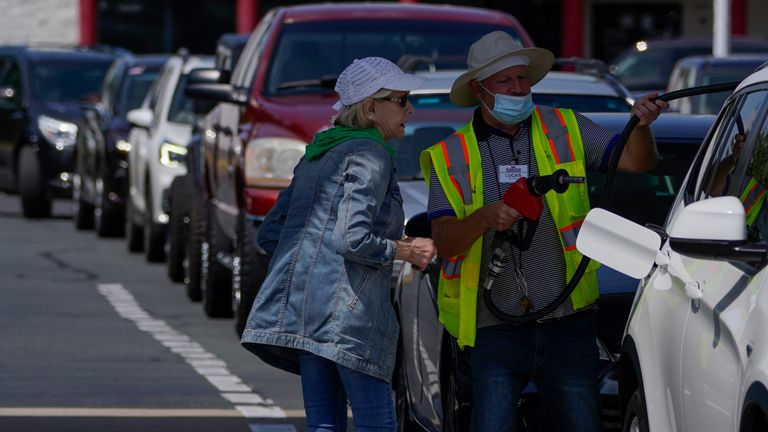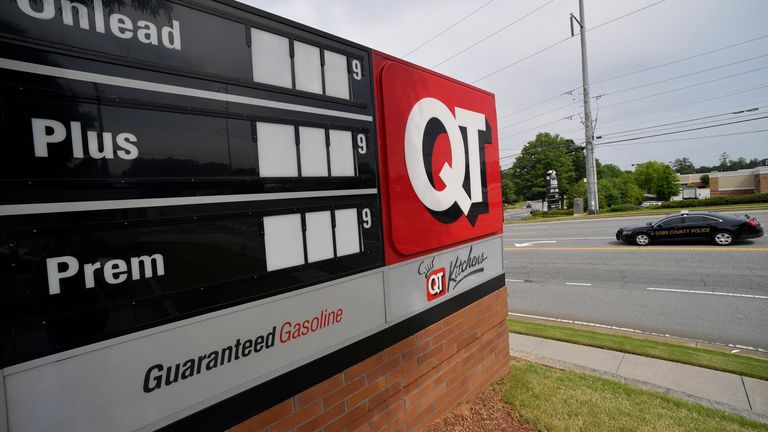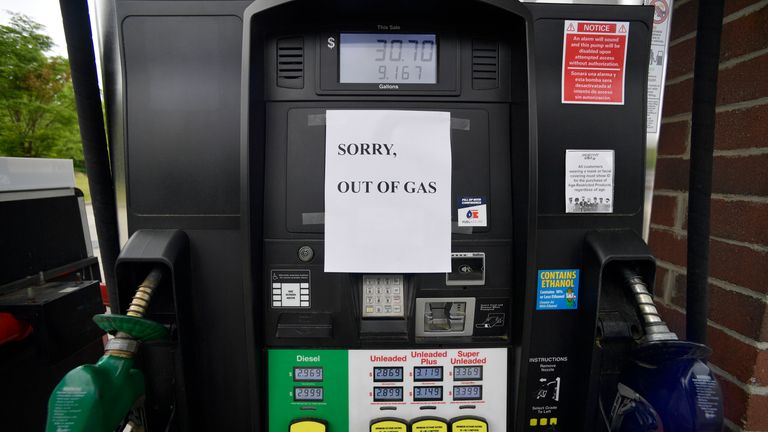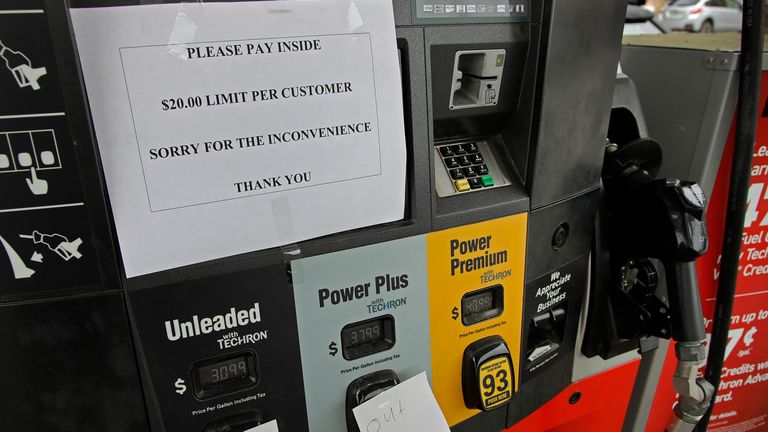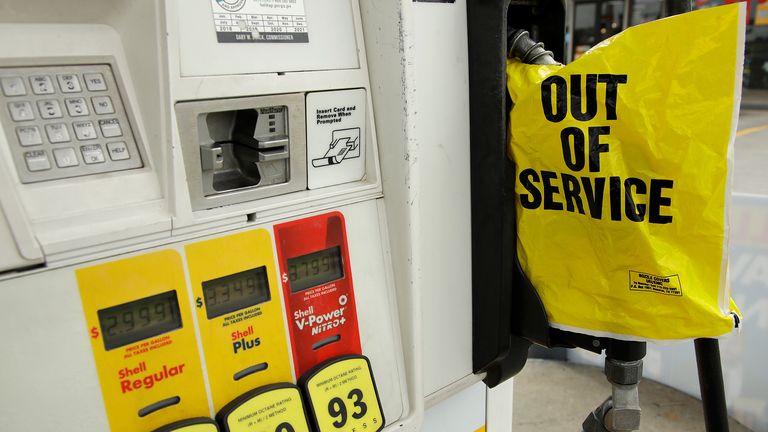Petrol stations in America’s eastern states are starting to run low after supplies were hit by a ransomware attack on a crucial pipeline.
The price of petrol has also gone up to its highest level in nearly seven years.
Prices were rising across the nation already, with demand increasing as the effects of the pandemic finally began to ease.
The closure of Colonial Pipeline has added to that effect, particularly in the states that rely on the pipeline for their supplies.
The average price of petrol across the United States, a country that often seems to revolve around the use of cars and lorries, has risen by about 60% over the past year – although it remains far, far cheaper than the prices paid by British drivers.
But the biggest problem now facing drivers is not the price, but the availability, and the nagging fear that supplies could dry up.
The governor of North Carolina has declared a state of emergency while, by Monday night, around 7% of petrol stations in the state of Virginia had run out of fuel, with many others running short.
There are similar reports from other states supplied by the pipeline, including Georgia, Florida, Alabama and South Carolina.
State authorities have asked drivers not to panic buy but there are reports of queues forming as drivers rush to fill up their vehicles.
However, federal leaders have tried to offer reassurance that they are working on plans to move fuel supplies around the country if necessary, in order to mitigate any problems.
The pipeline, which runs from Texas to New York, was hit on Friday by a cyber attack carried out by a group known as DarkSide.
Ever since, the pipeline has been switched off, with little clarity yet about when it will return to action.
A statement from Colonial said its goal was to “substantially” resume service by the end of this week.
The company is apparently trying to establish how far the malware has spread through its system, and whether it has reached the control systems that would be used to return the pipeline to use.
Initial indications are that the attack was focused on the administrative systems of the company, rather than the actual working of the pipeline itself – suggesting it was, as DarkSide’s own statement suggested, a commercial attack, rather than one designed to destroy crucial infrastructure.
The company responded by closing down the entire pipeline as a precautionary measure.
Colonial has not responded to questions about whether it has, would, or will pay a ransom to DarkSide.
Reports suggest Colonial has not yet shared precise details of the attack with federal authorities.
It, in turn, has said that responsibility for returning the pipeline to action rests entirely with the company.
President Joe Biden has said that America would “disrupt and prosecute” the people behind DarkSide, although he said there was no evidence to link the attack to the Russian government.
Subscribe to Into The Grey Zone podcast on Apple Podcasts, Spotify, Spreaker
Authorities in Washington DC have regularly made contingency plans for potential attacks on energy infrastructure, warned of Russian malware and have even tried to insert their own malware into Russian energy networks.
But the evidence here is that this is about extortion, rather than geopolitics.
The FBI, which has confirmed the use of DarkSide software, issued warnings to other utility companies, telling them to be wary of similar attacks on their own infrastructure.

